Why Do Cats Eat Human Hair?

You'll agree with me when I say:
Having a cat munching on your luscious locks is not exactly a pleasant experience. 😧
Just imagine:
You're sitting on the couch, having a relaxing evening, when suddenly your feline friend decides to feast on your precious mane.
But fear not, my concerned cat owners, let's dive into the mysterious world of why cats eat human hair.
Shall we?
Reasons Why Cats Eat Human Hair
The reasons why cats eat human hair are quite fascinating, and I'll tell you seven of them:
- Pica: Cats with pica, a condition that drives animals to eat non-food items, may be inclined to eat hair.
- Nutritional deficiencies: If your cat is lacking certain nutrients in their diet, they might turn to human hair as a source.
- Stress: Just like humans, cats can experience stress, which can lead to compulsive behaviors like eating hair.
- Boredom: Cats need mental stimulation, and without it, they may resort to hair-eating as a form of entertainment.
- Predatory instincts: For some cats, playing with hair mimics hunting behavior and satisfies their natural instincts.
- Scent attraction: Cats may be lured by the scents from hair products or simply find human hair’s aroma intriguing.
- Comfort-seeking: In times of stress or anxiety, cats often seek comfort, and chewing on hair provides a sense of relief.
Understanding these motivations behind hair-eating is crucial for addressing the issue.
You must determine the underlying cause, whether it's nutritional deficiencies, stress, boredom, predatory instincts, hunger, or seeking comfort.
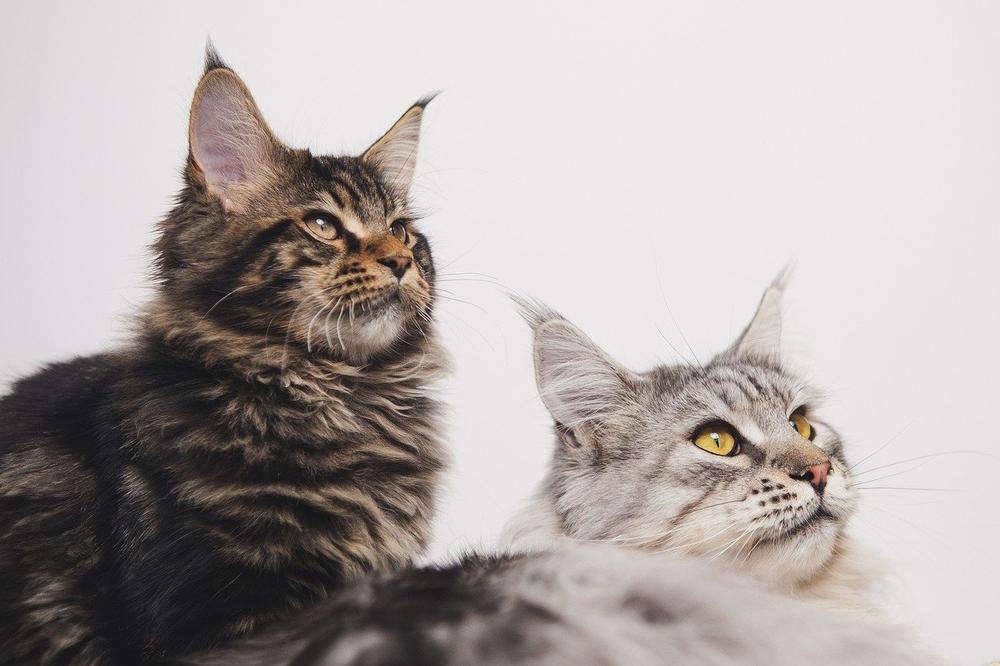
Providing engaging toys, enriching their environment, and offering a balanced diet can help redirect their attention away from hair.
What's more, regular grooming sessions can prevent excessive hair ingestion by removing loose strands.
If necessary, consult with a veterinarian to rule out any medical conditions that may contribute to this behavior.
Every cat is unique, so determining their individual motivation is key to finding a solution.
Main points I'll expand upon further down this article:
- Cats may chew on human hair for various reasons, including scent marking and seeking attention.
- Mint-scented shampoos might attract cats due to similarities with catnip.
- Hair chewing can be a display of affection and bonding for cats.
- Redirecting attention and providing alternatives is important to address hair chewing behavior.
- Using unscented or citrus-scented hair products may repel cats from eating hair.
- Developing a positive bond with the cat can help manage stress and anxiety.
- Monitoring excessive grooming behavior and addressing medical concerns is crucial.
- Hair ingestion can lead to gastric irritation and potential health problems.
- Keep toxic hair care products away from cats to prevent intoxication.
- Veterinary evaluation is necessary for cats with pica to avoid intestinal blockage.
Why Cats May Chew Hair During Your Sleep
Here are a few reasons why cats may chew hair during your sleep:
- Playful nature: Cats find the movement and texture of hair engaging.
- Scent marking and familiarity: Chewing hair helps cats establish familiarity with their owners and scent mark them.
- Expression of affection: Cats express their love by rubbing, licking, and nibbling on their owners' hair.
- Attention-seeking: Some cats chew hair to seek attention, especially near mealtimes or at night.
To protect your hair from damage like split ends and breakage caused by cats, consider using a sleeping cap.
Furthermore, if your cat bites or chews your hair while you're asleep, it could be a sign that they want your attention.
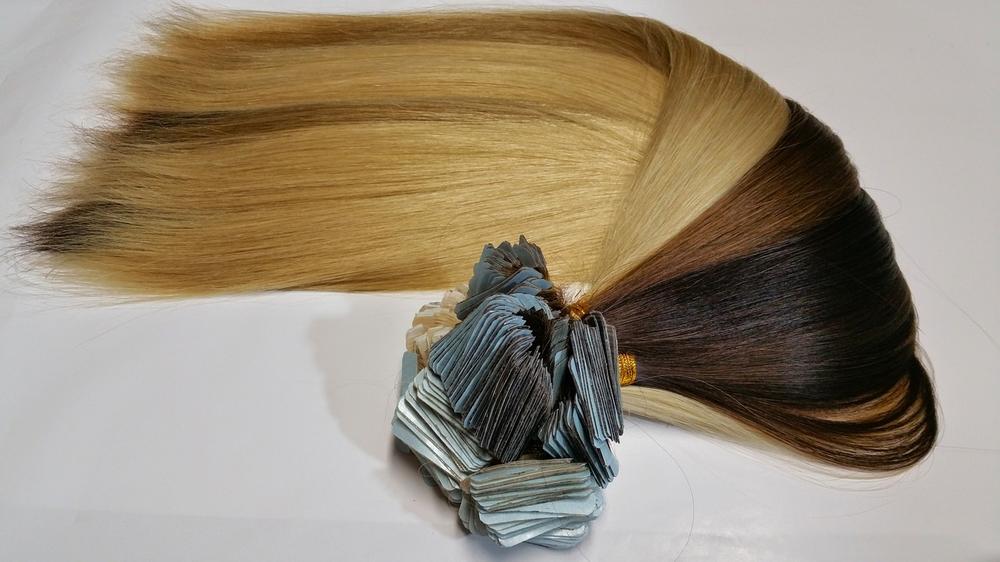
Understanding their behavior and providing appropriate alternatives can help keep both you and your feline friend happy. 😺
However, have you ever wondered why cats specifically target your hair after a shower?
The answer may surprise you, and it involves their unique fascination with water and the scent of freshly washed hair...
Why Does My Cat Bite My Hair After I Shower?
After you take a shower, your furry friend might have an odd habit of biting your hair, and there's a reason for it.
Cats are enigmatic creatures, known for their quirkiness.
Their affinity for water and the scent of freshly washed hair might explain this behavior.
Interestingly, mint-scented shampoos can further attract cats since they resemble the alluring aroma of catnip.
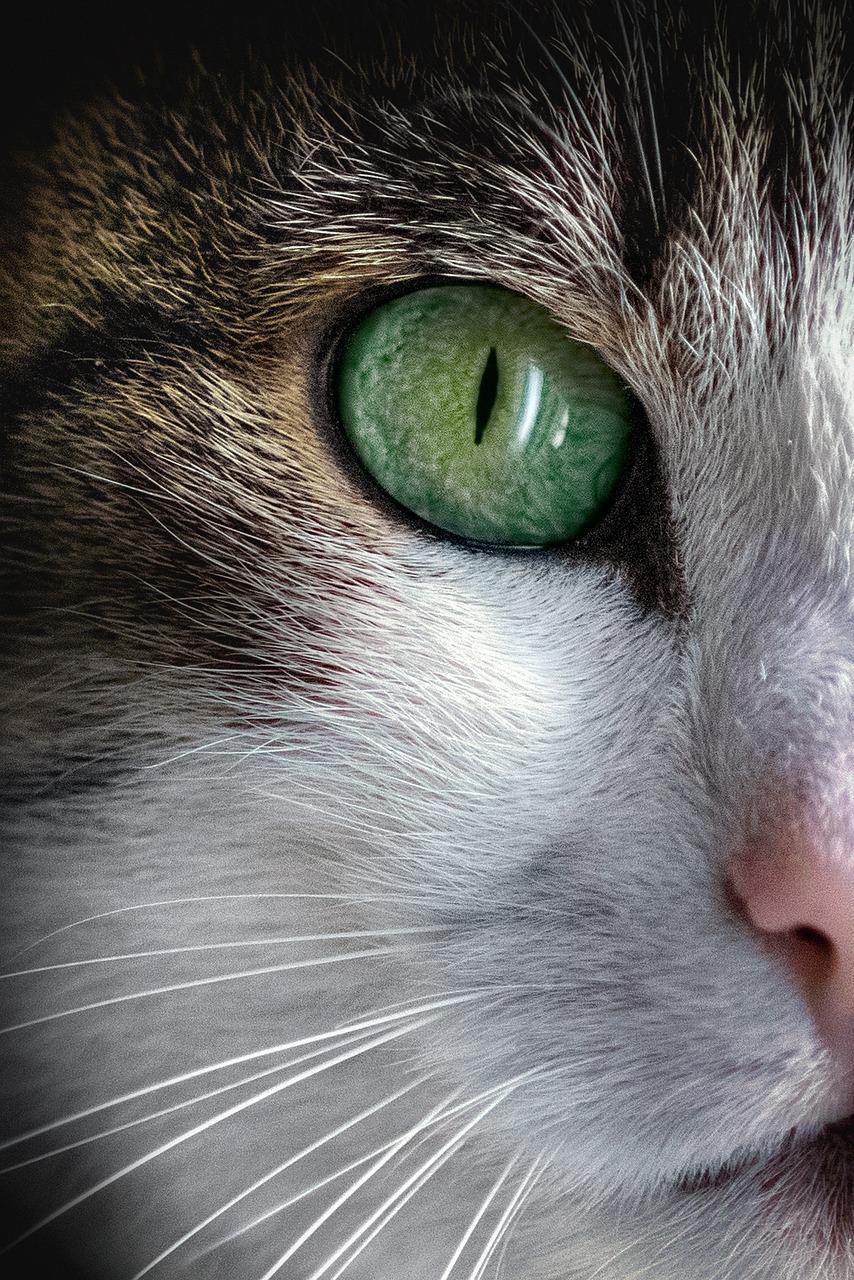
If your feline companion insists on nibbling on your locks post-shower, it may be worth considering a switch to a different fragrance.
This peculiar act could also be their way of marking you with their unique scent or simply being captivated by the enticing smell of your shampoo.
And if you're wondering why your cat might be taking a particular interest in your hair after you shower, the answers may be found in my blog post, Why Does My Cat Bite My Ear.
In this comprehensive guide, I delve into the various reasons behind this behavior and provide potential solutions or explanations.
So, if you're curious to know more about the quirky habits of our feline friends, you definitely won't want to miss out on this enlightening read.
My Cat Licks My Hair and Bites My Head
Cats lick and bite hair as a grooming behavior
Hey there!
Ever wonder why your adorable kitty is so into licking your hair?
Well, it's not because she wants to keep up with the latest hair trends.
Cats actually have their own unique reasons for this interesting habit.
One big reason cats lick hair is because they consider you part of their social group.
They're instinctively wired to groom themselves, and they extend that care to their trusted companions like you – such sweethearts.
You know those little spines on their tongues known as papillae?
Well, cats use them not only to groom themselves but also when taking care of their beloved humans – that includes giving your hair some special attention.
It could be an expression of stress or affection
Ah, another possible reason your furry friend enjoys snuggling up to your hair may be due to changes in her environment. Have you recently moved or added a new member to the family?
If so, congratulations!
However, please bear in mind that cats often engage in grooming behaviors (like hair licking) when they feel stressed or anxious. It’s their way of seeking comfort during times of change.
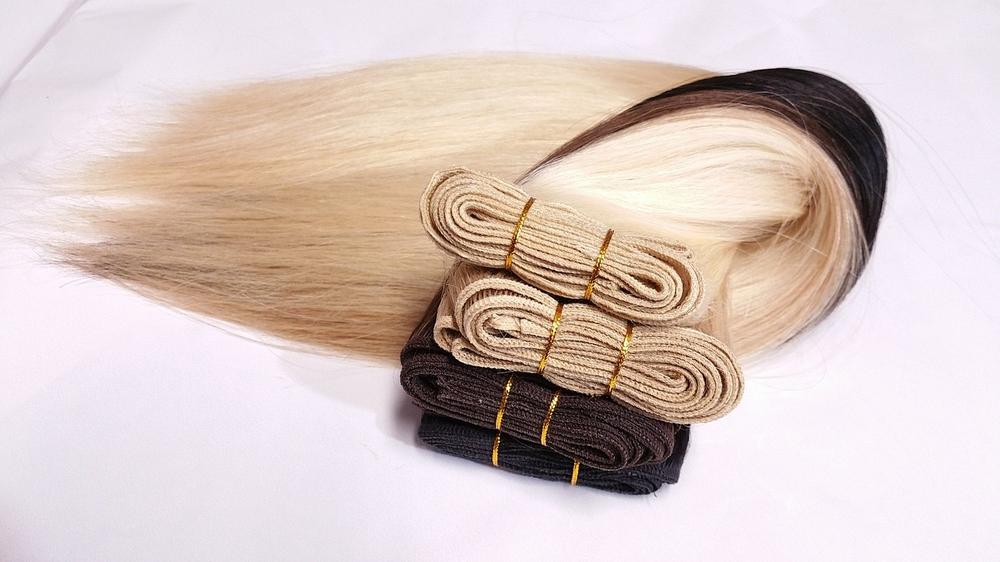
Isn't that just adorable?
But wait, there's more.
Licking your hair can also be seen as a bonding gesture from your purrfect pal. By transferring her scent onto your hair, she's marking you as one of her own.
So basically, she's saying, "Hey there, human! Now you smell like me!"
Beware of biting or scratching behavior
While hair licking is usually harmless and endearing, if your cat starts nibbling or scratching your head while doing so, it might indicate a deeper issue.
This behavior could signal underlying health or behavioral problems.
So make sure to keep an eye on the situation and reach out to a veterinarian if necessary.
Safety first.
And by the way, if you're intrigued by why your cat enjoys licking your hair, you should definitely check out my blog post titled Why Does My Cat Like Her Nose Rubbed.
It's a fascinating guide that explores the fascinating reasons behind why cats have a particular fondness for having their noses rubbed.
Trust me, you won't want to miss out on this valuable information! So go ahead and give it a read—I promise you'll find it both interesting and helpful.
Putting an End to Hair Chewing
To put an end to hair chewing in cats, here are some practical tips:
- Provide appropriate toys specifically designed for chewing to redirect their desire to chew on human hair.
- Offer alternative activities that can distract them from hair chewing, such as playing with interactive toys or engaging in interactive play sessions.
- Gently remove the cat from the hair whenever you catch them in the act, and redirect their attention to a more appropriate object or activity.
- Avoid reinforcing the hair chewing behavior by not giving any attention or rewards when they engage in it. Instead, reward them when they choose not to chew on hair.
- Regularly brush and massage your cat to promote a healthy coat and reduce the need for excessive grooming, which can lead to hair chewing.
- Use pheromone products like diffusers or sprays to help reduce stress and anxiety, which can contribute to hair chewing behaviors.
- Provide safe chewing objects, such as dental treats or specific cat chewing toys, to satisfy their natural urge to chew.
- Engage in regular play sessions using various toys that encourage exercise and mental stimulation.
- Use puzzle feeders to provide additional mental stimulation and reduce boredom.
- Consider using unscented or citrus-scented hair products, as the scent may help repel cats from hair-chewing behaviors.
Building a positive bond with your cat through affectionate interactions, enjoyable activities, and managing stress is crucial.
Keep an eye out for excessive grooming and consult a veterinarian if other methods fail or if there are sudden changes in behavior.
Can Cats Get Sick From Eating Human Hair?
| Reason | Consequences |
|---|---|
| Obsessive grooming behavior | Can lead to discomfort and gastric irritation |
| Curiosity and exploration | May result in vomiting and constipation |
| Attraction to the texture and smell of human hair | Could cause gastrointestinal blockages |
| Pica disorder | Can lead to serious health problems and intestinal blockage |
| Exposure to potentially toxic hair care products | Ingestion of toxic substances can be harmful to the cat |
| Hyperthyroidism | Cats with this condition should be monitored for hair ingestion |
Are cats and human hair a good combination or a disaster waiting to happen?
Let's examine it closely.
Can cats get sick from eating human hair?
Absolutely.
Consuming too much human hair can lead to hairballs in their digestive system.
Trust me, it's not pleasant.
Hairballs can cause discomfort, constipation, or blockages.
This can result in gastric irritation and vomiting over time. Definitely not ideal for your furry friend, right?
However, here's the catch.
Cats are naturally curious.
They enjoy exploring and sometimes that includes chewing on human hair.
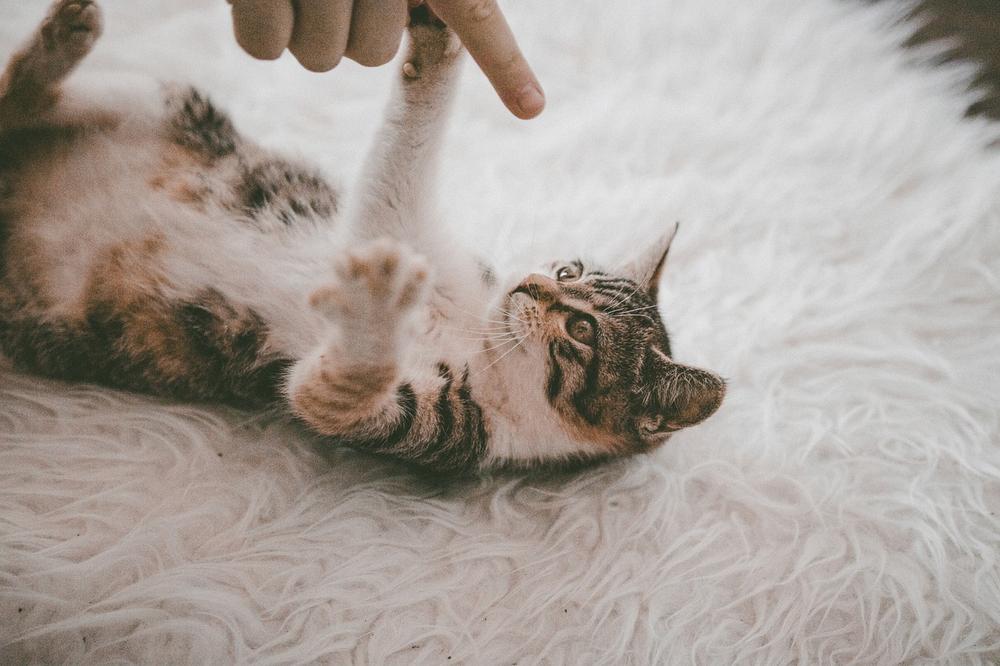
But what if that hair contains toxic substances?
That's a big problem, my friends. Keep those hair products away from your cats to prevent any poisoning if they ingest it.
Here's an interesting fact:
Some cats have pica, a condition where they intentionally eat human hair. If you suspect your cat has this condition, seek veterinary evaluation immediately.
We don't want anything blocking your kitty's tummy.
Now, let me give you a piece of advice:
Stay vigilant.
Watch out for any changes in behavior or health related to hair chewing. Your furry friend's well-being should always come first, so don't hesitate to contact your vet if something seems off.
Cats need to digest hair properly to avoid hairball issues.
So keep an eye on them if they have a habit of eating hair.
Also, hyperthyroidism can trigger hair munching, so stay alert, my friends.
Your cats will appreciate your efforts.
And that wraps up today's article.
If you wish to read more of my useful articles, I recommend you check out some of these: Why Do Cats Like Their Ears Rubbed, Should I Let My Kitten Sleep With Me, Why Does My Cat Cry When I Leave the Room, Why Do Cats Purr When You Pet Them, and Can You Discipline a Cat
Talk soon,
-Sarah Davis